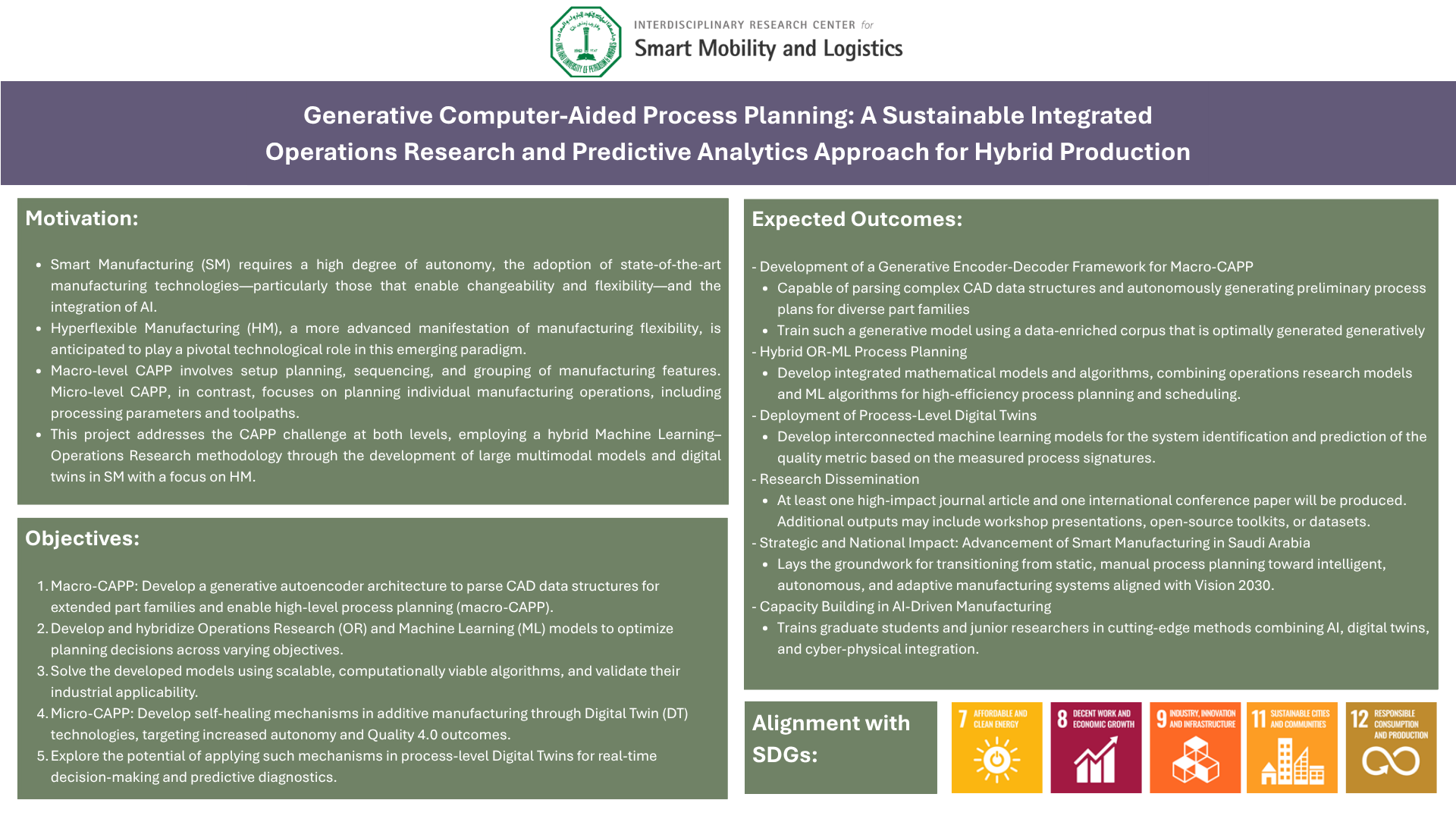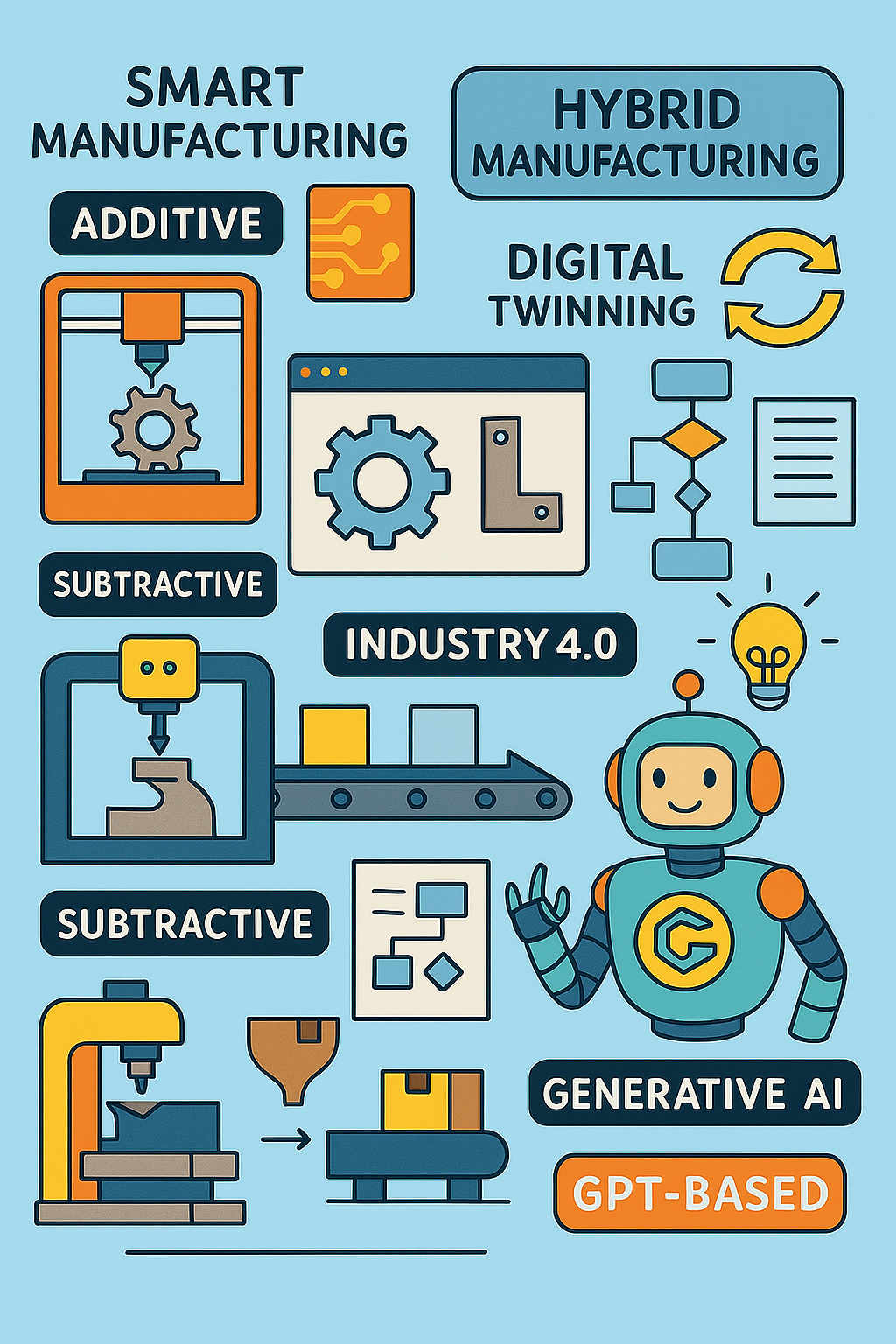Generative Computer-Aided Process Planning: A Sustainable Integrated Operations Research and Predictive Analytics Approach for Hybrid Production
PI: Dr. Ahmed Azab
CoI: Dr. Moayad AlNammi
CoI: Dr. Moayad AlNammi

